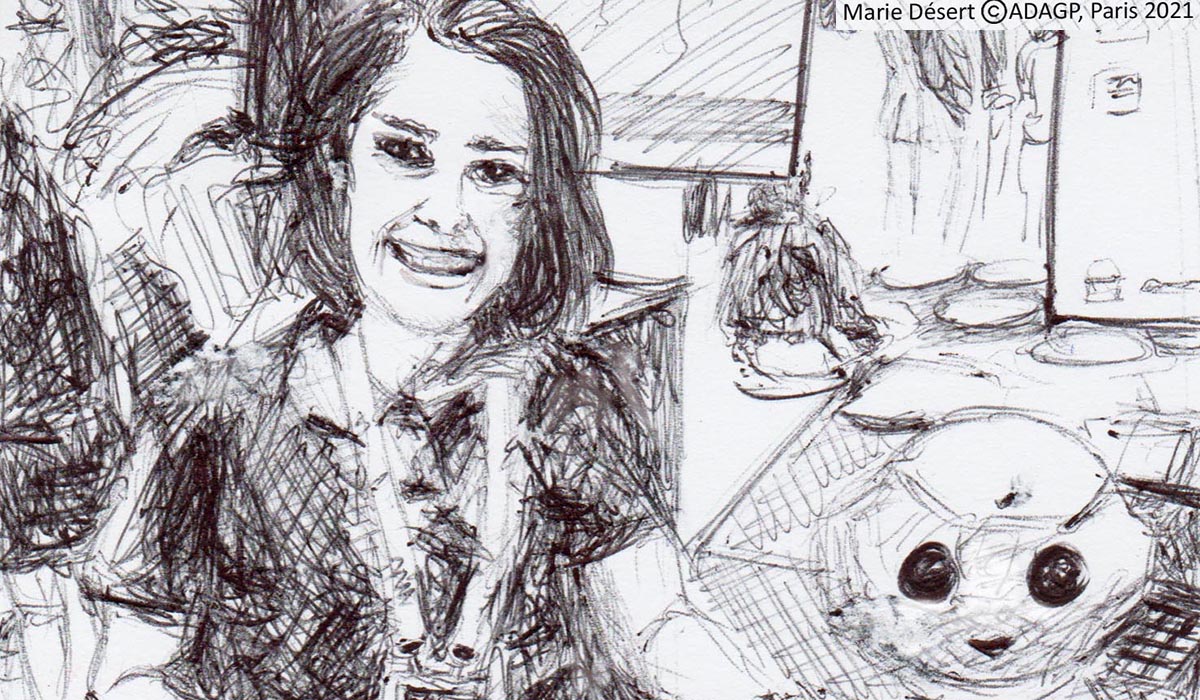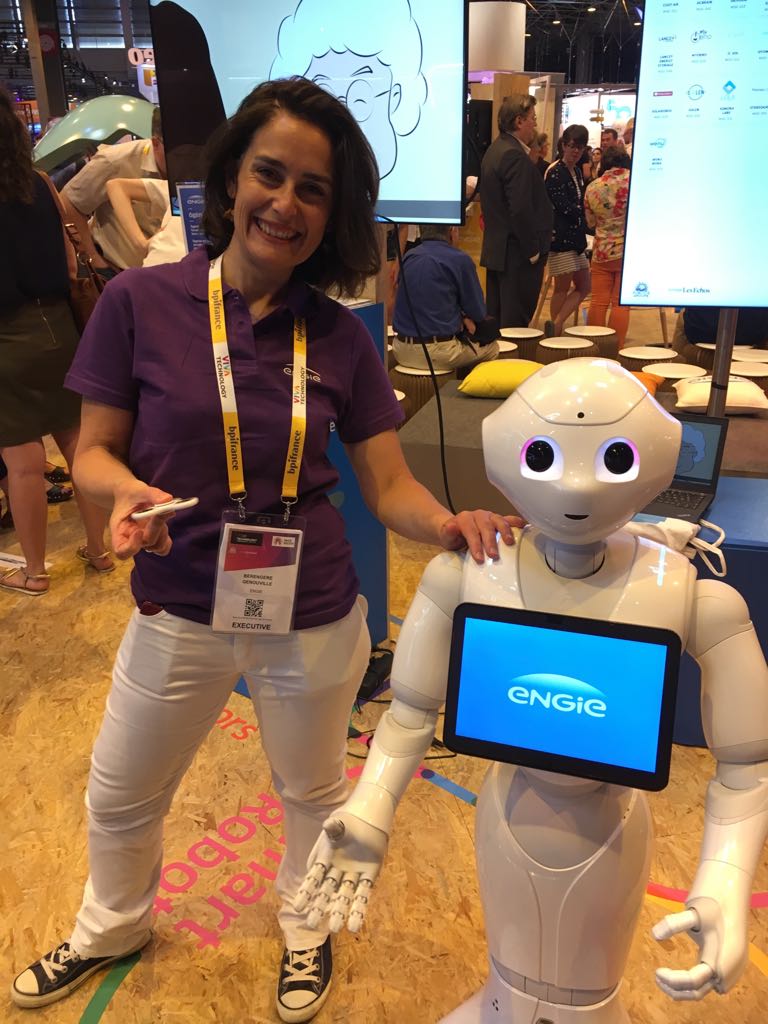


What attracts me is the alchemist aspect of turning waste into something of value.
A dream that may sound strange: waste management! Could you tell us more about it?
Bérengère G. My career path is somewhat atypical! I worked in the world of telecom for 12 years — military communications, for the fire department, gendarmerie — first in operations, the implementation of networks. But what interested me most was inventing systems rather than just implementing them. When my son was born 17 years ago, I was looking to work in climate, even if the term “climate change” was not yet used. At that time we were mainly talking about pollution, the environment.
Six years later, I took the plunge and joined Lyonnaise des Eaux, a not-so-simple transition from a high-tech sector in the middle of the telecom bubble, with a career path and a comfortable salary. At Lyonnaise des Eaux, then at Suez, I worked on smart meters, and on the Gazpar project (smart gas meters) for GRDF.
I arrived at the ENGIE Lab CRIGEN to work as head of a "smart" lab on projects that combined electronics, sensors, connected objects, intelligence, and data processing. Then I created an internal startup, Ôgénie, specialized in providing home care for elderly people using digital technology, with Stéphanie Merger from INEO.
I started working again in research thanks to my current manager, Luc Goossens, in an extraordinary team, where I feel like I'm helping to prepare for the future, and I have at my disposition the tools to really make things happen. I lead research projects on new transversal technologies such as artificial intelligence, drones and robots, connected objects, cybersecurity... My field also includes environmental studies, life cycle analysis, biodiversity, and anything related to the social acceptance of new technologies. This year, I have returned to my first love with the Biomass, biogas and waste Lab. It took a while, but I got there, I'm making trash!
Why did you choose the energy sector?
Bérengère G. I was interested in everything in the energy sector, but what attracted me the most was the alchemist aspect of turning trash or anything that we consider as waste into something of value.
You have always worked in very tech-oriented sectors. Do you think being a woman in this sector is more of an asset or a handicap?
Bérengère G. I have often thought about this question. And as time goes by, more and more women are working with me! In the military telecommunications sector, I was the only woman. We went in the field, we climbed the pylons. Was that a problem at the time? It could have been, but only occasionally, for example, during missions in certain countries in the Middle East.
But I've always been lucky to work with managers who let me make my own choices. They didn't think: she's a woman, she's not going to do it. They asked me: do you want to do it? And I said: yes, I do! Or no I don’t...
What is complicated is the fair sharing of domestic duties, especially when you have children, because it is still not equal between men and women. It generates more work, more fatigue and a heavy mental load.
How do you see the future of energy and the world of tomorrow?
Bérengère G. It is easier for me to talk about the future of energy because it is my job. For the world of tomorrow, I can talk about my dreams, but will it really happen?
What I dream of for the future is that the pandemic will have helped us to really know what we want. We have been — we still are — cut off from essential things, especially human relationships. This is one of my cornerstones: building real relationships with my colleagues, with my friends and with people in general. The other is respecting nature and animals, something that is very important to me.
In this complicated context, where all our certainties are put into question, I have also realized how important it is to work on something with a purpose, which is why I’m working on the future of energy, on biodiversity.…
Do you think women have a specific role to play in order to achieve carbon neutrality?
Bérengère G. I’m not sure if it's politically correct to say that, but I think that women are particularly sensitive to nature, to what surrounds us. We are more connected, perhaps more instinctive. Knowing how to use this instinctive side can help us make good decisions for the future and for carbon neutrality.
I also think that we are better at listening and connecting with others. And that allows us to put forward points of view other than just ROC and EBITDA’s. Today, women can bring a different approach, thinking “out of the box.”
Is there a project you remember that you’re particularly proud of?
Bérengère G. Even if I wasn’t there at the beginning of this project, which started ten years ago, I am proud to work on the Gaya project, on the recovery of waste, what we call RDF (Refuse Derived Fuel) — solid recovered fuels that we gasify and transform into biomethane. I am responsible for industrialization, and I’m working with the goal of going from 0.5 MW to 20 MW. There are huge challenges in terms of business, risks, value sharing. This is my number one challenge for this year. And I am also very proud of all the women who have worked on this project, in particular Alessandra Barba.
Do you have one message for women, in general or in particular?
Bérengère G. A colleague who is going to retire told me something that I want to share: "Be yourself, keep and use your interpersonal skills, your enthusiasm, the fact that you put your soul into your work, that you love what you do and that you create a bond with others, even if you don’t feel that these are professional skills.”
And I want to share this message, to tell women: don't be what you think you should be, be yourself! Use all your abilities, even the ones you think are not important for your work.